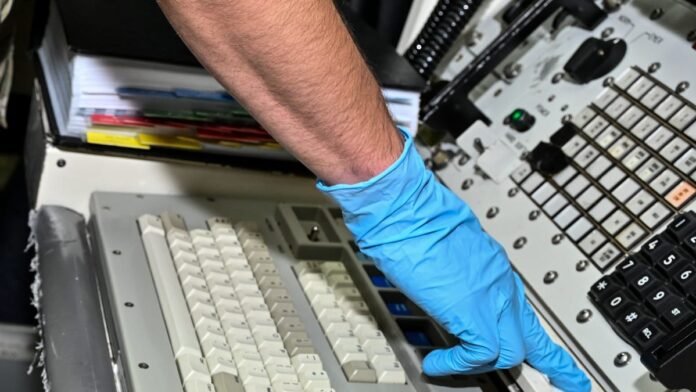The Air Force started studying cancer rates in the nuclear missile community in 2023 due to pressure from ailing missile officers.
A multi-layered defense approach has been touted by Hegseth and Trump
Is President Donald Trump’s proposed Golden Dome our best option for preventing a missile strike?
Lawmakers may soon order an independent re-do of an ongoing Air Force study on possible cancer risk in personnel manning its nuclear missiles.
A provision in the House’s draft defense policy bill would, if passed, require the National Academy of Sciences, Engineering, and Medicine to commission a study examining “occupational health and safety conditions” in Minuteman III intercontinental ballistic missile facilities. The sites include the underground alert facilities where Air Force missile officers spend long shifts prepared to launch in the case of nuclear war.
The move comes after an independent researcher concluded there is an increase in cases of a rare cancer at an Air Force missile base in Montana, adding another wrinkle to a years-long push for answers.
The new, congressionally directed research would also scrutinize the methodology and design of an ongoing Air Force study of the issue.
The Air Force Medical Service and Air Force Global Strike Command, which oversees the service’s nuclear-armed missile and bomber forces, began studying the missile community’s cancer risks in 2023 after a Space Force officer compiled a list of cancer diagnoses at Malmstrom Air Force Base, Montana.
The Air Force study’s preliminary findings indicated troops in the nuclear missile community don’t have higher cancer diagnosis or death rates than other active duty servicemembers or the general U.S. population.
The official study’s environmental surveys, however, confirmed the presence of polychorinated biphenyls − a likely cancer-causing chemical − in alert facilities at Malmstrom and at Minot Air Force Base, North Dakota.
And an independent assessment of self-reported Non-Hodgkin lymphoma cases at Malmstrom released in April found an increase in diagnoses among missileers.
Rep. Don Bacon, R-Nebraska, submitted the independent study amendment, which cleared a key hurdle when it passed the House Armed Services Committee on July 16. Bacon told USA TODAY that a meeting with one of his constituents − an ailing retired missile officer − moved him to author the provision.
“Let’s make sure that we have some outside experts working with the Air Force,” said Bacon, who is a retired Air Force brigadier general. “We want to make sure there’s credibility and, whatever results come out, that we’ve done total due diligence.”
The Omaha-based representative added that the Air Force needs to learn what’s wrong in the aging Minuteman III launch facilities before it builds new ones for the planned Sentinel ICBM.
Air Force officials defended the rigor and transparency of their ongoing study in a statement to USA TODAY.
“We welcome the opportunity of scientific and medical professionals to review Air Force studies and to provide comments,” said Alana Miller, a spokeswoman for the Office of the Air Force Surgeon General. Miller emphasized the internal independence of Air Force epidemiologists conducting the study and their partnerships with external researchers who review their findings.
The Torchlight Initiative, an advocacy group for missile community members, praised the independent study amendment in a press release. Torchlight has documented more than 800 self-reported cases of cancer and other exposure-related diseases among ICBM airmen and veterans.
“There is an urgent need for … thorough independent research, formal acknowledgement of likely exposures, and a sustained commitment to safeguard future personnel through enhanced environmental monitoring,” the group argued.
For the independent study to occur, the provision must make it into the final defense policy bill later this year. The House and Senate typically pass competing versions of the legislation before negotiating a compromise bill for the president’s signature.
Davis Winkie’s role covering nuclear threats and national security at USA TODAY is supported by a partnership with Outrider Foundation and Journalism Funding Partners. Funders do not provide editorial input.
